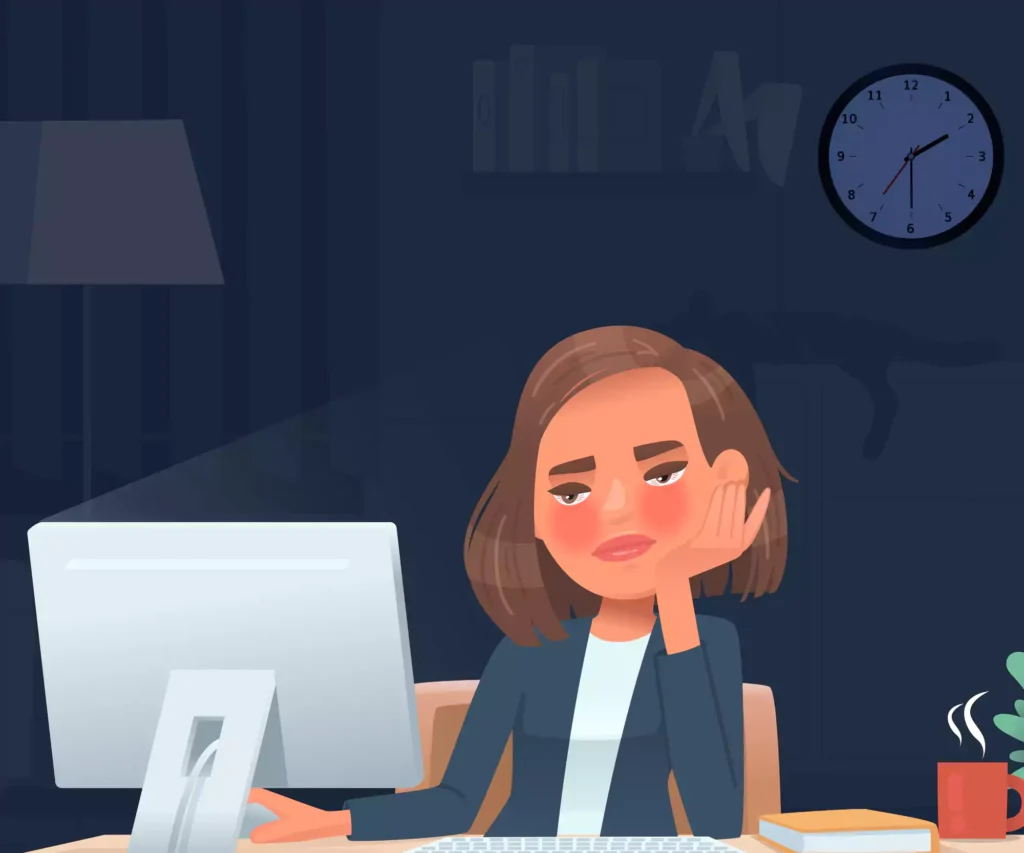We’ve all experienced sleep deprivation at some point in our lives—whether it was for staying up all night cramming for the next day’s test or binge-watching the newest season of your favourite series. However, if this becomes a prolonged habit, you might be doing more harm to yourself than you can think of! Let us have a look at a few indicators to see how the lack of proper sleep has already been affecting your health without even your knowledge.
Sleep deprivation indicators
You’re ‘sleep-deprived’ when you get less than seven hours of sleep. It can be acute (lasting one or two days) or chronic (a long-term problem). Apart from puffy eyes and dark circles, which we are mostly concerned about, we tend to ignore many other physical and mental signs of poor sleep. So why don’t you take some time to answer the questions below?
- Do you wake up tired and go back to sleep frequently before finally getting out of bed?
- Are you slow or uncoordinated in the mornings?
- Do you feel like you take a long time to process information?
- Are you often cranky or irritable?
- Do you get upset easily?
- Do you feel unable to concentrate or focus on things?
- Do you fall asleep unexpectedly during the day?
- Do you consume more caffeinated drinks or sugary, fried foods?
- Are you constantly anxious and stressed out?
Did you answer “yes” to more than 5 out of 10 of these questions? Then, you are probably sleep-deprived. Now, let’s figure out why sleep deprivation is bad news.

Health implications
Apart from the above-mentioned indicators, people undergo an alarming number of changes when sleep deprived. They could become paranoid, experience hallucinations, and have intensified pain reactions. Exhaustion is only the beginning of the health effects when you continuously deprive yourself of sleep. Let’s look at some of the consequences:
- Hormonal impacts: When you don’t get enough sleep, you are fatigued and highly stressed. There will be large amounts of stress hormones circulating within your body. As a result, your internal organs could suffer long-term damage because they are functioning at much higher rates than usual. For instance, an external indication of high stress could be hair loss.
Additionally, weight gain is another result of sleep deprivation, which has its own set of adverse impacts. This weight gain is because the lack of sleep impacts the hormones that determine your hunger, causing you to feel hungrier and eat more. At the same time, sleep deprivation also slows down your metabolism, preventing you from efficiently burning calories.
- Neurological impacts: Sleep deprivation has been linked to dementia and Alzheimer’s. Apart from being linked to these diseases that affect cognitive functioning, sleep deprivation also causes lower empathy, inadequate risk assessment, lack of coordination, and slower reaction times. In such a situation, routine activities like driving a vehicle or crossing a road can become risky.
These serious health implications are enough for anyone to realise that humans must sleep well through the night. Now that you know the ill effects of sleep deprivation, how do you create good sleep habits? The term ‘sleep habits’ implies a question of habit: what time does one go to bed, where does one sleep, and how does one fall asleep. Sadly, there’s no one-size-fits-all solution. If you’ve struggled with creating good sleep habits, we have some useful recommendations for you in the next article.


